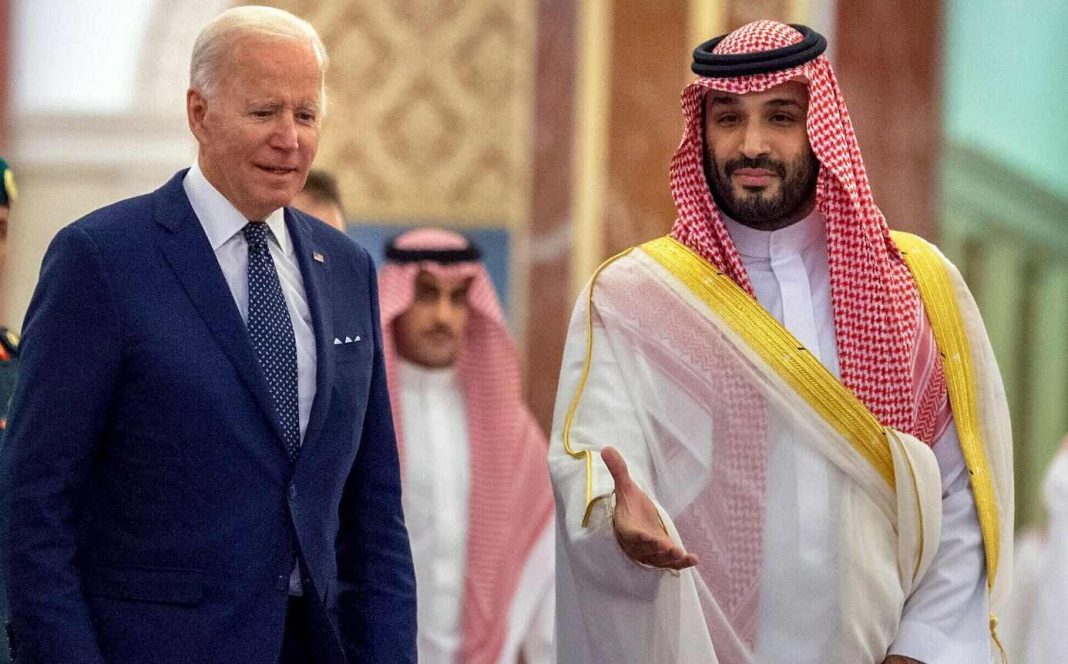Joe Biden has threatened Saudi Arabia with repercussions as a result of the country’s dramatic reduction in oil production; nevertheless, much like past presidents of the United States who have been irritated by the monarchy, Biden may discover that his choices are limited when he evaluates the situation.
In June, President Joe Biden travelled to Saudi Arabia and was seen giving a fist bump to the country’s de facto ruler, Crown Prince Mohammed bin Salman. This was despite the fact that Biden had previously pledged to make bin Salman a pariah for his stance on human rights.
But Saudi Arabia reneged on the unstated reason for Biden’s visit, as the OPEC+ oil cartel led by the kingdom announced a production cut of two million barrels per day. This will raise much-needed revenue for Russia as it attacks Ukraine and will raise prices on US consumers weeks before congressional elections. Saudi Arabia is the leader of the OPEC+ oil cartel.
The administration of President Joe Biden has indicated that they are open to the idea of fellow Democrats taking punitive actions in Congress.
Senator Chris Murphy, who has been an outspoken critic of Saudi Arabia for its devastating war in Yemen, suggested that the United States should stop the sale of medium-range air-to-air missiles to the kingdom and instead send them to Ukraine. He also suggested that the United States should redeploy Patriot missile shields to Ukraine or other NATO allies.
Those who support Saudi Arabia have expressed concern that the United States may push the country into the arms of Russia or China. However, after eight decades of relationship with the United States, many analysts are sceptical that this scenario is even remotely possible.
Jake Sullivan, the US National Security Advisor, told CNN on Sunday that Joe Biden would “act methodically, strategically” in re-evaluating US-Saudi relations, and he added that the US leader had “no plans” to meet the crown prince at a G20 summit that will be held in Indonesia in November. Sullivan’s comments came in response to a question about whether or not Biden would meet with the crown prince.
An analyst on the Middle East who teaches at Michigan State University named Russell Lucas argued that the government of Joe Biden should at least slow down the rate at which guns are sold, particularly resupplies to Saudi Arabia.
He said that they could not be rapidly replaced by acquiring them from a different armaments source
However, earlier efforts to put space between the United States and Saudi Arabia have been met with a key obstacle: oil. This is true even after the attacks on September 11, 2001, which were carried out by largely Saudi residents.
Even while more is being done to combat climate change, it will be decades before the United States is protected from the effects of rising oil costs.
The fact that the United States has overtaken Saudi Arabia as the leading oil producer in the world is a point of pride for leaders in the United States. However, production choices in the United States are determined by private companies for the most part, and oil derived from shale, which is at the centre of the energy boom in the United States, is more difficult to scale up or down.
Saudi Arabia has claimed that the OPEC+ decision was solely economic, and it has said that the supply of US weaponry serves the interests of both nations.
At a meeting of the United Nations on Wednesday, the Kingdom of Saudi Arabia joined the United States in voting to condemn Russia’s annexation of land in Ukraine.
But Bruce Riedel, a senior scholar at the Brookings Institution, said that the increase in the price of oil was a blatant act of political interference on favour of Donald Trump’s Republican Party by the crown prince, also known by his initials MBS.
The former president was a fervent admirer of the Saudis, and he boasted of having saved MBS when it was discovered by US intelligence that he had allowed the assassination and dismemberment of a journalist living in the United States who was critical of him, Jamal Khashoggi.
Riedel said that the Saudis may mend ties by reducing the amount of pressure they are putting on Yemen or by making some concessions towards human rights.
However, one alternative for the US to lessen Saudi Arabia’s influence, which involves removing oil sanctions on Saudi Arabia’s regional foe Iran, is becoming less and less feasible.
The Biden administration is expected to be careful not to take action that could be seen as benefiting the clerical leadership as it cracks down on mass protests that were sparked by the death of a young woman arrested by morality police. The negotiations to restore a nuclear deal from 2015 have been stalled for months, and there is no sign that they will be able to be revived.
Steven Cook, a senior fellow at the Council on Foreign Relations, suggested that the United States should embrace a “realist rapprochement” with Saudi Arabia that accepts the relationship is transactional. Cook made this statement in response to a question on what the United States should do.

